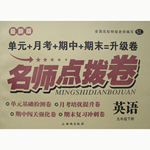阅读理解。
When Boris left school, he could not find a job. He tried hard and pestered (纠缠) his relatives,
but they had problems of their own. He answered advertisements until he could not afford to buy
any more stamps. Boris grew annoyed, then depressed, then a little hardened. Still he went on trying
and still he failed. He began to think that he had no future at all.
"Why don't you start your own business?" one of his uncles told him. "The world is a money-locker.
You'd better find a way of opening it."
"But what can I do?"
"Get out and have a look round." advised his uncle in a vague sort of way. "See what people want;
then give it to them, and they will pay for it."
Boris began to cycle around the town and found a suitable piece of a waste ground in the end.
Then he set up his business as a cycle repairer. He worked hard, made friends with his customers
and gradually managed to build up his goodwill and profit. A few months later, he found that he had
more work than he could deal with by himself. He found a number of empty shops but they were all
no good: in the wrong position, too expensive or with some other snag(障碍). But at long last, he
managed to find an empty shop on a new estate where there were plenty of customers but no
competition.
Boris and his assistant taught themselves how to repair scooters and motor-cycles. Slowly but
surely the profits increased and the business developed. At last, Boris had managed to open the
money-locker and found bank notes and gold coins inside.
1. Which of the following best describes Boris' job hunting experience?
A. Surprising.
B. Encouraging.
C. Boring.
D. Disappointing.
2. Which of the following would be the best title for the passage?
A. Goodwill is the key to success
B. The world is a money-locker
C. No education, no future
D. Difficulty of starting a small business
3. Boris started his career by .
A. repairing cycles
B. developing a waste ground
C. cycling around the town
D. buying empty shops
4. Boris finally chose an empty shop on a new estate because .
A. it was not so expensive
B. he had a lot of old customers there
C. there were good opportunities there
D. he could make good use of his skills there
5. We can infer from the last paragraph that Boris .
A. still couldn't make good profits
B. found a lot of gold coins by accident
C. set off in a successful career
D. had great difficulty running his business

 名师点拨卷系列答案
名师点拨卷系列答案